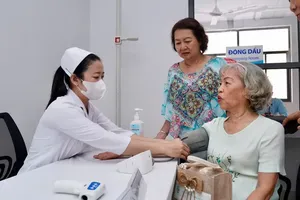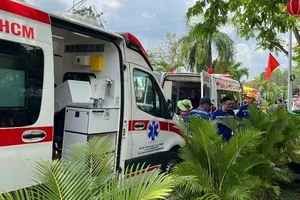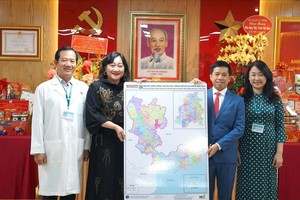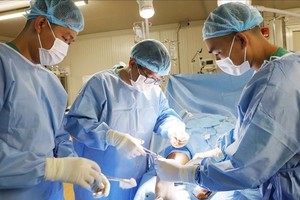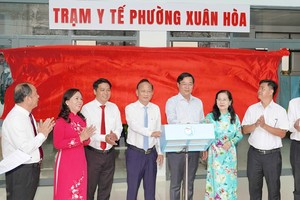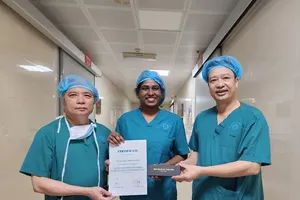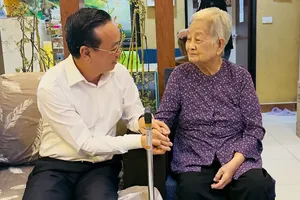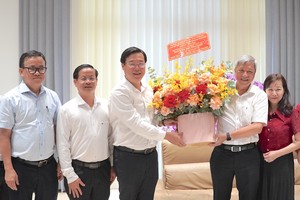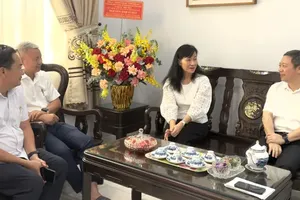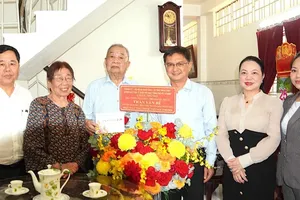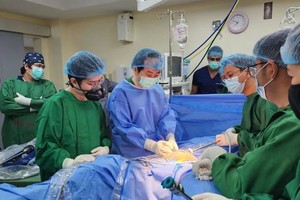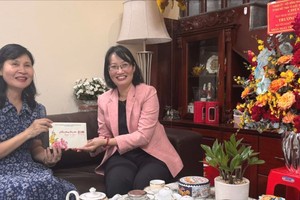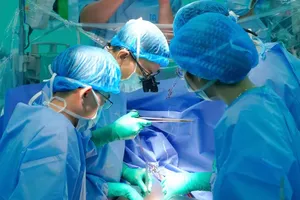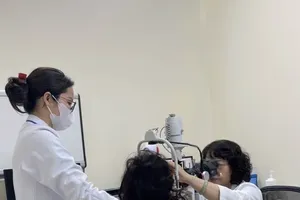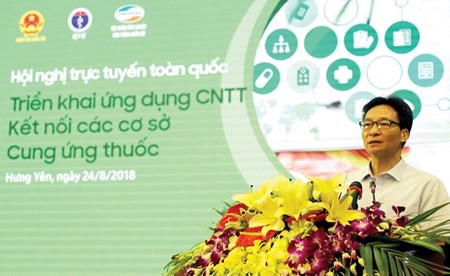
In this event, the network system to link pharmacies in the country was also officially launched.
Minister of Health Nguyen Thi Kim Tien clearly stated that the ‘National Strategy to Develop Pharmaceutical in the Period to 2020 and Vision to 2030’ approved by the Prime Minister identified the goal to fully cover all necessary medicine demands with reasonable prices for the public while guiding them to use these chemicals effectively and safely.
Many minor aims of this goal have already been complete by 2020. The trading network of medicine is healthily growing to satisfy the needs of patients.
However, there are still several challenges as to buying and selling medicine without prescription of doctors, especially anti-biotic. This leads to the grave result of drug-resistant. Also, the problem of fake or low-quality medicine of unknown origin has greatly harmed the health of users.
The medicine distribution system still has so many intermediaries, contributing to the difficulty in identifying medicine’s origin or controlling them.
The Ministry of Health, therefore, has approve the project to increase the control on prescribed medicine and the act of prescribing drugs for patients in the period from 2017 to 2020.
The Ministry also prepared a plan to implement information technology to link all pharmacies in the nation along with the construction of strict regulations to legalize the use of information technology among pharmacies nationwide. It is expected that the plan will better serve citizens in identifying the origin, quality, expired date, and prices of medicine or even reporting fake medicine to the local authorities while helping the government to control medicine prescription and purchases.
This was piloted in the northern provinces of Vinh Phuc, Hung Yen, and Phu Tho.
In the conference, Deputy Prime Minister Vu Duc Dam instructed the Ministry of Health to implement this network as soon as possible, saying that Vietnam should try its best to reduce the drug-resistant rate and more effectively control medicine selling and buying as well as prices.
There is no better method but to connect all pharmacies in the country for the ease and transparency of control.
Colonel Hoang Son, Deputy Director of Viettel said that information technology will greatly aid us in tackling two major issues of connecting the public with health care institutes, officers and sharing precise and timely information.
Making use of this network, a pharmacy owner is able to reduce 50 – 70 percent of the time to manage the inventory, bills, and revenues since each transaction costs only 30 seconds to a minute. Regarding managing units, all reports to different levels will not be necessary since the planning and estimation or distribution of medicine will be done in the real time anywhere and anytime.
The network system to connect pharmacies in the country is developed by Viettel, consisting of a system to manage pharmacies, a national database for medicine, and a website and smartphone app to look up medicine for the public, a method to warn the local authorities of low-quality or fake medicine.
This network is expected to computerize all pharmacies and ensure that demanding database is sent correctly to the national medicine managing system. It is also a great tool to monitor activities of workers in a pharmacy, avoiding the issue of inventory loss, reducing the overhead cost and increasing the performance.
As to the Ministry of Health, this network will help to control the whole medicine supply chain from importing or manufacturing medicine to distributing them, and managing their state of low quality, faking, over-prescription, unfair prescription, anti-biotic misuse. It can aid the Ministry in identifying the origin of medicine and withdrawing low-quality medicine.
Before the official launch of the network system, it was piloted in 4 provinces. Until now, there have been 25 provinces and cities taking part in the system, successfully creating 4,178 accounts for retailed pharmacies and monitoring over 22,000 prescriptions.
According to the Ministry of Health, at the moment, there are 61,867 retailed pharmacies in the nation, 71.15 percent of which has Internet connection, but only 48 percent of which use 23 pieces of software to monitor their trading activities.
Up till now, the Ministry of Health is able to standardize 52.000/60.000 items of medicine.
This online conference attracted the participation of more than 16,500 delegates from over 700 spots in Vietnam.
